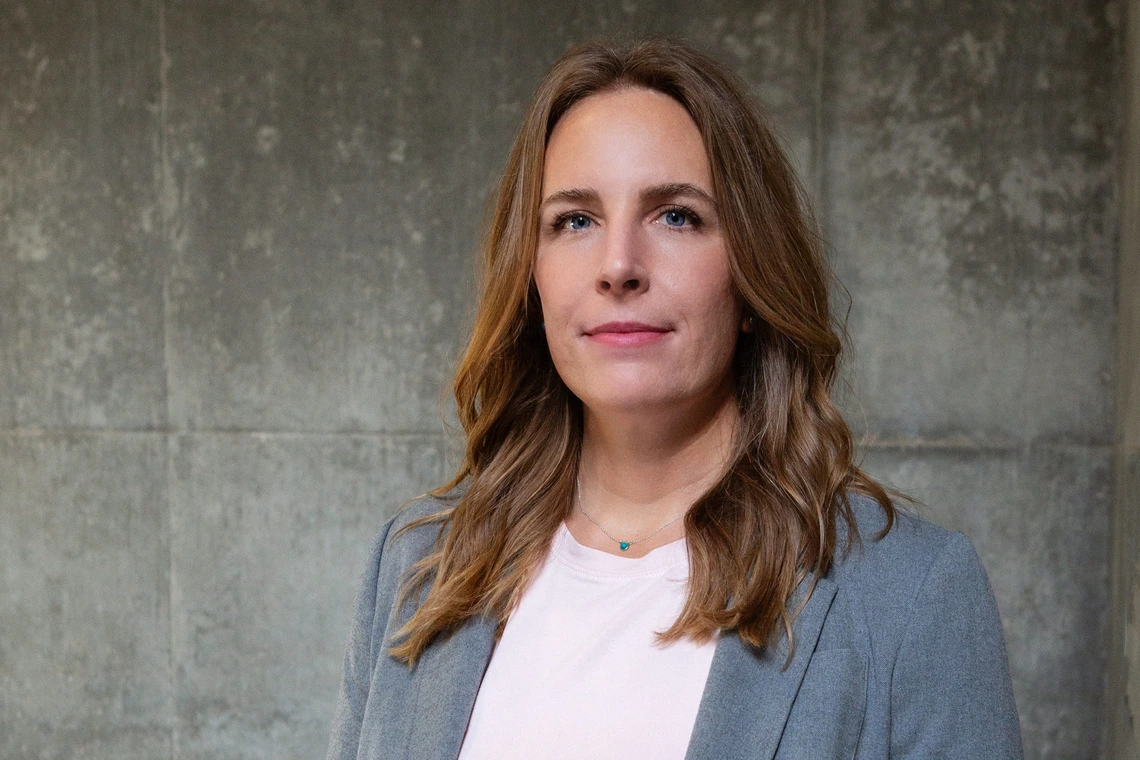A volatile environment – Meredith awarded DOE grant to study VOCs and carbon storage in soil
A new DOE grant will allow Meredith to continue her exploration of VOCs and global change, with a focus on microbial processes that enhance long-term storage of carbon in soils.

This fall, SNRE Assistant Professor Laura Meredith was awarded a $2.2M grant from the Department of Energy to study carbon sequestration through soil, microbe and plant interactions.
In ecosystems, a sizeable fraction of carbon compounds exists in the gas phase, but these volatile organic compounds (VOCs) are often overlooked, Meredith explained. “We have little understanding of how much they quantitatively contribute to plant and microbial metabolism, organismal interactions in soil, and soil carbon stores.”
Roots, litter, aboveground vegetation, and microbial metabolism are all sources of VOCs to soils; however, little is known about how they can contribute to soil carbon cycling. Meredith aims to verify and quantify that VOCs can influence soil carbon by three routes:
(1), by direct mechanisms such as microbes consuming VOCs, converting that carbon to their biomass, thus leading to storage
(2) by acting as signaling and infochemicals that microbes and plants interact with, which for example could affect soil C by promotion or inhibition of root carbon release through microbial VOCs
(3) through the transport of VOCs in soil that can diffuse greater distances than nonvolatile compounds stuck in the aqueous and solid phases, which may separate regions of VOC production from regions where VOCs move to and contribute to C storage.
“Our overarching project goal is to verify and quantify VOCs as direct and indirect contributors to soil carbon stabilization within the rhizosphere and beyond through teleconnections, and to determine their underpinning ecological and metabolic mechanisms,” Meredith said. “We hope to determine how much VOCs already influence soil carbon stores and uncover potential lever points for soil carbon sequestration through soil, microbe, and/or plant management.”
Meredith has made a career out of studying the potential of VOCs and was recently recognized with the Thomas Hilker Award by the American Geophysical Union, given annually to an early career scientist driving unusually creative work in the field of biogeosciences.
The award memorializes Thomas Hilker, whose groundbreaking work to quantify global photosynthesis from satellite data was a technical scientific challenge that required both long-range vision and tremendous diligence and attention to detail.
Meredith knows a thing or two about defying disciplinary boundaries to tackle grand challenges. Working at the intersection of functional microbiology and atmospheric chemistry, she has been an assistant professor in the School of Natural Resources and the Environment since 2017.
During the B2 WALD project, Meredith served as the director of the rainforest at Biosphere 2 and leveraged the opportunity to bring together 90 scientists from five different countries to monitor the resiliency and vulnerability of plants and microbes in the face of global change.
For three months, the research team put the 30-acre “rainforest under glass” through moderate and then severe drought stress. The experiment, called Water, Atmosphere and Life Dynamics – or WALD, which is German for "forest" – set out to capture every bit of data possible throughout the drought and rewet process. The team gathered measurements on everything from microbiome and deep-water soil processes to carbon pooling and volatile organic compound emissions.
While the research team continues to mill through the immense collection of unique data, a number of studies have been published in leading scientific journals, including Science and Nature.
The Hilker Award is just one of many honors she has earned in her career but it’s a particularly meaningful award, as it recognizes her interdisciplinary approach, Meredith explained.
“My background is in atmospheric chemistry and I got really interested in how soil microbes influenced the atmosphere,” said Meredith, an assistant professor in the UArizona College of Agriculture, Life and Environmental Sciences’ School of Natural Resources and the Environment. “So I bridged that into microbiology, ecology, microbial and soil science to study ecosystems and global change on large scale.”
The new DOE grant will allow Meredith to continue her exploration of VOCs and global change. Along with ecosystem genomics expert Malak Tfaily, an associate professor and environmental scientist in the College of Agriculture, Life and Environmental Sciences, Meredith will study microbial processes that enhance long-term storage of carbon in soils.
"After exploring the impact of VOCs on the atmosphere, we will now turn our attention to how these carbon-carrying molecules influence soil and its capacity to sequester and store carbon," Meredith said. "Do plants and microbes pump VOCs into the ground, like they do in the atmosphere, and what processes help ensure the carbon stays below ground?"
The results of this study may lead to transformational understanding of soil carbon cycling and the role of VOCs in soil microbial systems.

